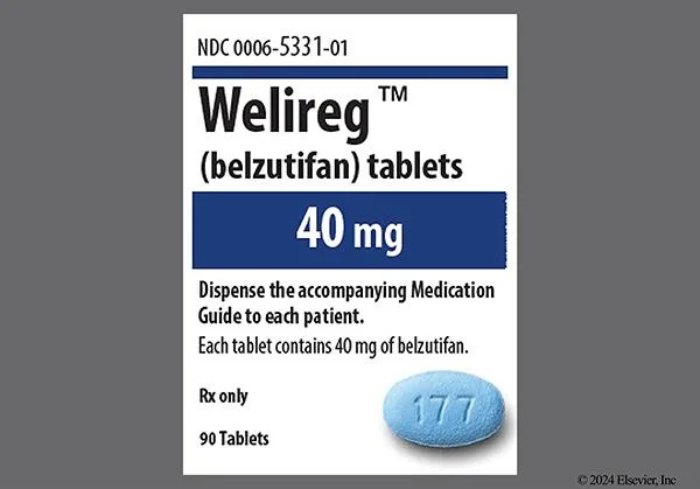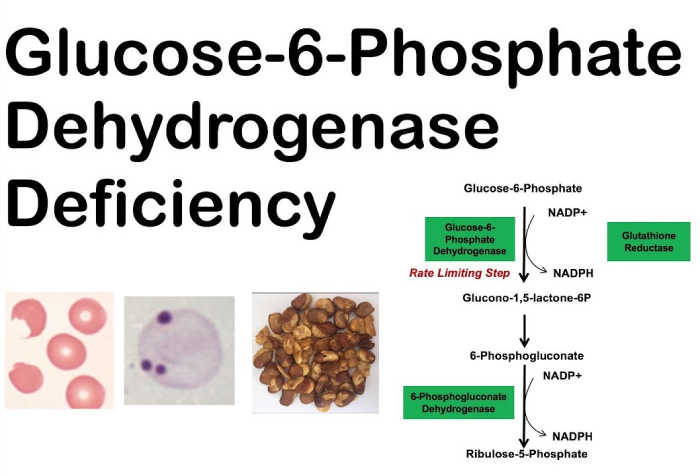What is Luteolin? Understanding This Natural Compound
Chemical Structure and Natural Sources
Are you curious about the remarkable luteolin benefits that have been capturing attention in the health and wellness community? Luteolin is a naturally occurring flavonoid that belongs to the flavone subclass of flavonoids. These compounds are known for their distinctive yellow color and are widely distributed throughout the plant kingdom. The molecular structure of luteolin enables it to deliver numerous health benefits, making it a fascinating subject for both researchers and health enthusiasts.
Foods with luteolin are more common than you might think. The exciting luteolin benefits can be obtained from everyday foods like celery, parsley, thyme, and different types of peppers. Among foods highest in luteolin, Mexican oregano and perilla leaves stand out for their particularly high concentrations. You’ll also find significant amounts in chrysanthemum flowers, which have been used in traditional teas for centuries.
Historical Use in Traditional Medicine
The remarkable luteolin benefits have been recognized in various traditional medicine systems for generations, particularly in Eastern healing practices. While modern science is just beginning to understand the mechanisms behind these luteolin benefits, traditional healers have long valued luteolin-containing plants for their therapeutic properties.

The Science Behind Luteolin’s Mechanisms
How Luteolin Works in the Body
To fully appreciate how luteolin benefits your health, it’s important to understand how this compound works in your body. When you consume foods containing luteolin or take luteolin supplements, the compound interacts with various cellular processes. It acts as a powerful antioxidant, helping to neutralize harmful free radicals that can damage your cells. Additionally, luteolin has been shown to modulate several signaling pathways involved in inflammation and cellular health.
Bioavailability and Absorption
The effectiveness of these remarkable luteolin benefits depends significantly on its bioavailability – how well your body can absorb and utilize it. When you consume luteolin food sources, the absorption rate can vary based on several factors, including:
- The form of luteolin (natural food source vs. supplements)
- Your individual digestive health
- The presence of other compounds in your meal
- The specific preparation method of foods high in luteolin
Essential Foods Rich in Luteolin
Top Natural Food Sources
If you’re looking to experience the full range of luteolin benefits through your diet, there are numerous luteolin-rich foods you can incorporate into your daily meals. Here are some of the best sources:
- Green Vegetables:
- Celery (both leaves and stalks)
- Fresh parsley
- Artichokes
- Green peppers
- Herbs and Spices:
- Dried oregano
- Thyme
- Rosemary
- Peppermint
- Fruits and Other Sources:
- Citrus fruits (particularly in the peel)
- Olive oil
- Chamomile tea
Comparing Luteolin Content in Different Foods
When it comes to foods high in luteolin, not all sources are created equal. The concentration can vary significantly based on factors such as:
- Growing conditions
- Harvest time
- Storage methods
- Preparation techniques
Understanding these variations can help you make informed choices about which luteolin foods to incorporate into your diet for maximum benefit.
Luteolin Benefits for Brain Health
Cognitive Enhancement Properties
The impressive luteolin benefits for cognitive function have become a focal point of recent research. This powerful flavonoid has demonstrated promising potential in supporting brain health through multiple mechanisms. Scientists studying brain gain luteolin effects have discovered that it can cross the blood-brain barrier, making these luteolin benefits directly accessible to neural tissues. Studies suggest that regular consumption of luteolin-rich foods or supplements may help maintain cognitive function as you age.
The cognitive enhancement properties among luteolin benefits are particularly fascinating in light of growing research. The compound’s ability to modulate certain neurotransmitters and promote healthy neural communication makes these luteolin benefits especially relevant for those interested in maintaining their mental acuity. Research indicates that the compound may support memory formation and learning processes, adding to the growing list of documented luteolin benefits in cognitive health.
Neuroprotective Effects
The neuroprotective properties of this compound represent another crucial aspect of its health-supporting potential. Through its antioxidant and anti-inflammatory actions, it helps maintain healthy brain cell function. This is particularly relevant as we age and our neural tissues face increasing oxidative stress.
Luteolin’s Role in Immune System Support
Anti-inflammatory Properties
Through various molecular pathways, this remarkable compound helps maintain healthy inflammatory responses in your body. Its ability to modulate immune system reactions makes it particularly valuable for overall health maintenance. The anti-inflammatory properties work in concert with other mechanisms to support your body’s natural defense systems.
Antioxidant Effects
As a powerful antioxidant, this flavonoid helps protect your cells from oxidative stress and free radical damage. This protection extends throughout your body, supporting overall cellular health and longevity. The antioxidant effects complement its other health-supporting properties, creating a comprehensive approach to cellular protection.
Hormonal Balance and Metabolic Effects
Impact on Testosterone Levels
Research exploring luteolin testosterone interactions has revealed fascinating findings about hormonal balance. The relationship between hormonal health and this compound continues to be an area of active research, with studies suggesting potential positive effects on maintaining healthy testosterone levels.
Weight Management Support
In terms of luteolin weight loss potential, the compound shows promising results through various mechanisms. These effects stem from its ability to support healthy metabolic function and cellular energy production. While not a magic solution for weight management, the metabolic support properties contribute to its overall health benefits.
Comparing Luteolin with Other Flavonoids
Luteolin vs. Quercetin
When examining luteolin vs quercetin, it’s crucial to understand their unique properties. While both compounds offer health benefits, they work through slightly different mechanisms. The combination of luteolin and quercetin supplements has gained attention as research suggests potential synergistic effects. Understanding how these compounds work together can help you make informed decisions about supplementation.
Luteolin vs. Lutein
In comparing luteolin vs lutein, despite their similar-sounding names, these compounds have distinct properties and functions in the body. While lutein is primarily known for its role in eye health, this flavonoid offers a broader range of physiological benefits. These differences highlight the unique role each compound plays in supporting overall health.
Supplementation Guide
Types of Supplements Available
When considering the remarkable luteolin benefits, many people turn to supplementation to ensure consistent intake. Various luteolin supplements are available in the market, each offering unique advantages. Understanding the different forms of luteolin supplement options can help you make informed decisions about which might best suit your needs. The growing recognition of luteolin benefits has led to the development of several specialized formulations.
One particularly innovative form that’s gaining attention for its enhanced benefits is liposomal luteolin. This advanced delivery system is designed to improve absorption and bioavailability. When exploring luteolin benefits through supplementation, it’s important to consider that liposomal forms may offer advantages in terms of absorption compared to traditional supplements.
Recommended Dosage Guidelines
Determining the appropriate luteolin dosage is crucial for experiencing optimal luteolin benefits while maintaining safety. While individual needs may vary, research suggests starting with lower doses and gradually increasing based on your body’s response. The key to maximizing luteolin through supplementation lies in consistent, appropriate dosing over time.

Special Applications
Luteolin for Pets
The exploration of luteolin benefits has extended to veterinary applications, particularly regarding luteolin dose dog recommendations. Pet owners increasingly seek natural support for their companions’ health, and the potential benefits for animals have garnered significant interest. However, it’s crucial to note that dosing for pets differs from human applications.
Liposomal Formulations
The development of liposomal delivery systems represents a significant advancement in maximizing luteolin benefits. These specialized formulations are designed to enhance absorption and cellular delivery, potentially making the compound’s benefits more accessible to your body. The technology behind liposomal luteolin aims to overcome some of the bioavailability challenges associated with traditional supplementation.
Potential Side Effects and Safety Considerations
Known Side Effects
While the luteolin benefits are well-documented, it’s important to understand potential luteolin side effects. Most people tolerate the compound well, but being aware of possible side effects of luteolin helps you make informed decisions about supplementation. When considering supplementation, it’s crucial to weigh the extensive luteolin benefits against any potential risks.
Drug Interactions and Precautions
Understanding potential interactions is essential when incorporating any new supplement into your routine. Some medications may interact with supplements, potentially affecting their effectiveness or safety. This consideration becomes particularly important when seeking to maximize luteolin benefits through supplementation.
How to Choose the Best Luteolin Products
Supplement Quality Markers
When seeking to experience optimal luteolin benefits, selecting high-quality supplements becomes crucial. The best luteolin supplements typically come from reputable manufacturers who prioritize purity and potency. Understanding how to evaluate different products can help you make informed purchasing decisions. Quality indicators of supplements include third-party testing, clear labeling, and transparent sourcing.
Form and Bioavailability Comparison
Different supplement forms can significantly impact how effectively you receive beneficial compounds. Whether you choose luteolin and quercetin supplement combinations or standalone products, bioavailability should be a key consideration. Research shows that the form of supplementation affects absorption rates, with some formulations demonstrating superior bioavailability. The various luteolin benefits can be enhanced or limited by different delivery systems.
Frequently Asked Questions
Q: What are the main health advantages I should know about?
A: The primary luteolin benefits include support for cognitive function, immune system health, and antioxidant protection. Research suggests that regular consumption through diet or supplementation may contribute to overall wellness.
Q: How can I incorporate more luteolin-rich foods into my diet?
A: Many foods containing luteolin are common kitchen ingredients. Focus on adding celery, parsley, thyme, and peppers to your meals. For optimal results, try to include a variety of these foods in your daily diet.
Q: What should I look for in a supplement?
A: When choosing supplements, look for products from reputable manufacturers that provide clear information about dosage and purity. Consider factors like bioavailability and whether the supplement contains complementary compounds.
Q: Are there any concerns about toxicity?
A: While the beneficial effects are well-documented, it’s important to follow recommended dosage guidelines. High doses may not necessarily increase benefits and could potentially cause unwanted effects.
Q: How does luteolin compare to other flavonoids?
A: Each flavonoid offers unique properties. The specific health benefits complement those of other flavonoids like quercetin, potentially offering synergistic effects when combined.
Conclusion: Making an Informed Decision
Understanding the potential of luteolin can help you make educated choices about incorporating it into your wellness routine. Whether through dietary sources or supplementation, the potential health advantages are supported by growing scientific evidence. As research continues to unveil new luteolin benefits, maintaining an informed, balanced approach becomes increasingly important.
Remember that while the health benefits are promising, it’s essential to approach supplementation with realistic expectations and consider your individual health needs. Consulting with healthcare providers can help you determine the most appropriate way to incorporate this beneficial compound into your health regimen.
The field of research surrounding this flavonoid continues to expand, offering new insights into its potential applications. By staying informed about the latest developments in luteolin benefits research, you can make better decisions about how to optimize its use for your specific health goals.



